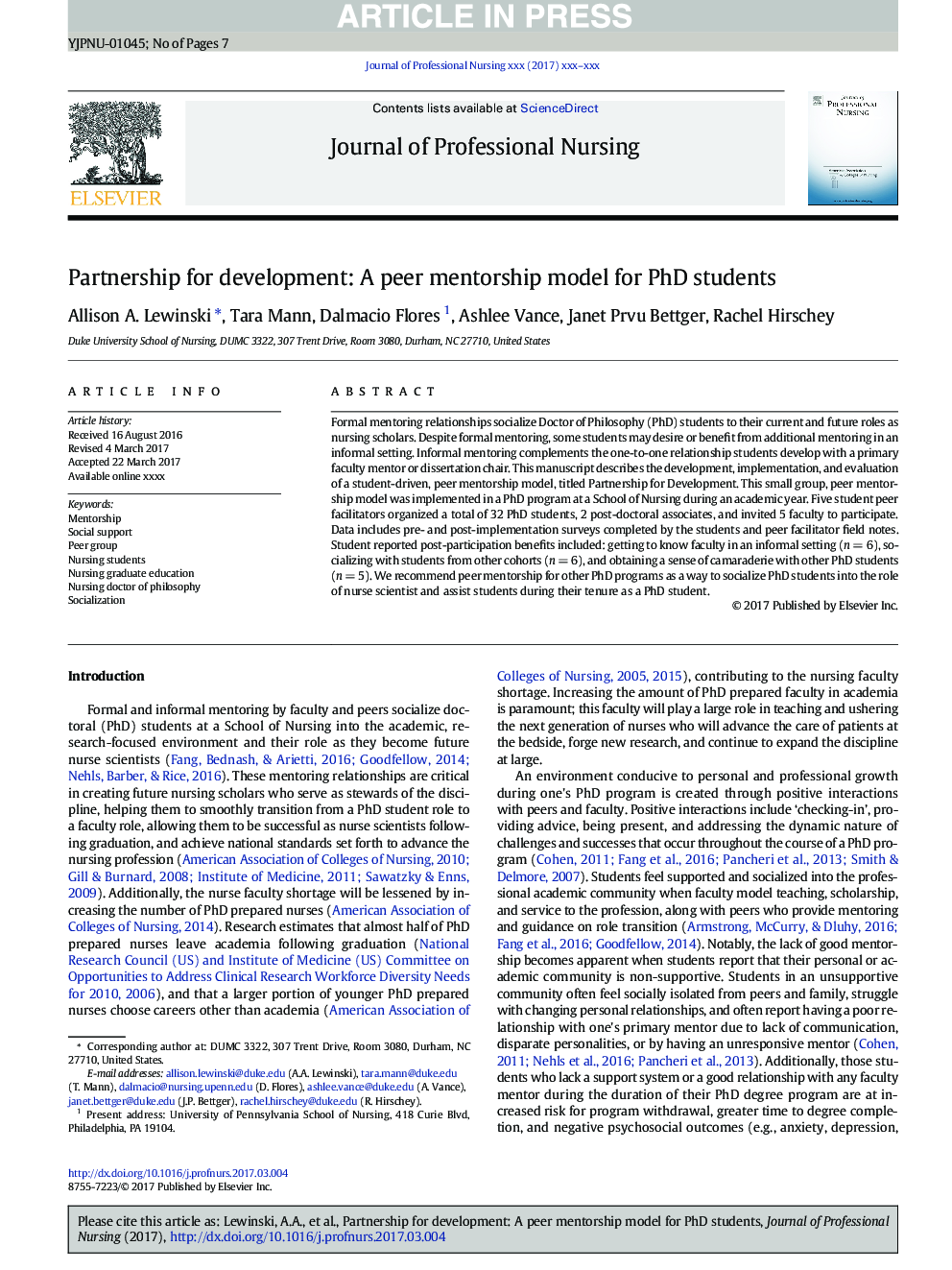| Article ID | Journal | Published Year | Pages | File Type |
|---|---|---|---|---|
| 5570603 | Journal of Professional Nursing | 2017 | 7 Pages |
Abstract
Formal mentoring relationships socialize Doctor of Philosophy (PhD) students to their current and future roles as nursing scholars. Despite formal mentoring, some students may desire or benefit from additional mentoring in an informal setting. Informal mentoring complements the one-to-one relationship students develop with a primary faculty mentor or dissertation chair. This manuscript describes the development, implementation, and evaluation of a student-driven, peer mentorship model, titled Partnership for Development. This small group, peer mentorship model was implemented in a PhD program at a School of Nursing during an academic year. Five student peer facilitators organized a total of 32 PhD students, 2 post-doctoral associates, and invited 5 faculty to participate. Data includes pre- and post-implementation surveys completed by the students and peer facilitator field notes. Student reported post-participation benefits included: getting to know faculty in an informal setting (n = 6), socializing with students from other cohorts (n = 6), and obtaining a sense of camaraderie with other PhD students (n = 5). We recommend peer mentorship for other PhD programs as a way to socialize PhD students into the role of nurse scientist and assist students during their tenure as a PhD student.
Related Topics
Health Sciences
Nursing and Health Professions
Nursing
Authors
Allison A. Lewinski, Tara Mann, Dalmacio Flores, Ashlee Vance, Janet Prvu Bettger, Rachel Hirschey,
